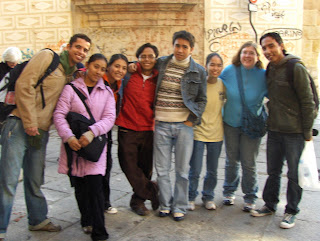Guys, I have a confession to make.
I am susceptible to peer pressure.
I know, shocking right? I mentioned several months ago that I
donate my hair. This started years and years ago, back before I was a true
teenager, and at that point, we didn’t have the internet quite as available as
it is now. Wikipedia didn’t exist, and we didn’t google everything. Actually, I’m
pretty sure any research I did do online was through Encarta.
Anyway, at that point, there was really just the big name if
you wanted to donate your hair: Locks of Love. And that’s where I donated. I
never questioned whether I was donating to the right place, or whether there
was even another option. But after the last time I donated my hair, I had
several people start to make comments. I heard people tell me that Locks of
Love was a scam and that they didn’t even give hair to children.
The closer I got to donating my hair, the more worried I became.
What if I donate to the wrong place? What if my donation doesn’t even mean
anything? What if it just arrives to the Locks of Love warehouse and they burn
it in some kind of ritual? (Okay, I didn’t worry quite that much.) But I started
to research different companies that accepted hair donations. I think I might
have researched a little more than was necessary, but I was curious.
I can see why people are a little disillusioned with Locks
of Love. But I don’t think it’s all their fault. Most of us, when we do
something that selfless, want to know that we’ve made a difference. Locks of
Love is one of the only companies that is willing to take any hair. Whether it’s
been colored, or permed, or if it’s greyed or bleached, any hair is acceptable.
And they’re willing to take shorter hair too. Ten inches is the minimum. Most
of the other companies are very specific. Nothing dyed. No shorter than 12
inches. Some even say that there can’t be any grey hair.
Here’s the thing. Hair that is damaged can’t be used for
wigs. It’s just a fact. So yes, Locks of Love doesn’t use all of the hair that’s
donated to them. But they also don’t have the higher standards that the other
companies have. At least, not up front. I kind of applaud them for helping
people feel like they’re doing good and helping others.
Oh, and then there’s the whole outrage about the fact that
Locks of Love doesn’t donate to just cancer patients. I know, right? What other
kind of children are there?
Cancer is a devastating disease. I’m not going to deny that.
But there are other diseases out there that can be just as cruel. There are
some kids who don’t even go through chemo or radiation, yet they still lose all
their hair. And some never get the chance to grow it back. Don’t they deserve
some hair too?
The last big argument that I’ve heard is that they charge
the children for the hair. The hair that was donated to them in the first
place! There’s a huge process that goes into making wigs, and from what I’ve
seen, it’s quite an expensive one. They charge for the process. Hey, they’re a
non-profit company, but that doesn’t mean that they can function without an
income! There were some companies that I researched that wouldn’t take hair
donations without also receiving a monetary donation as well. Every company
deals with the cost in a different way.
Even with all of that information, I did decide to use a
different company. The reason was very personal, and had little to do with
Locks of Love, or their supposed reputation.
So here’s foot number 9! Uncolored, undefiled by chemicals
other than shampoo and conditioner.













